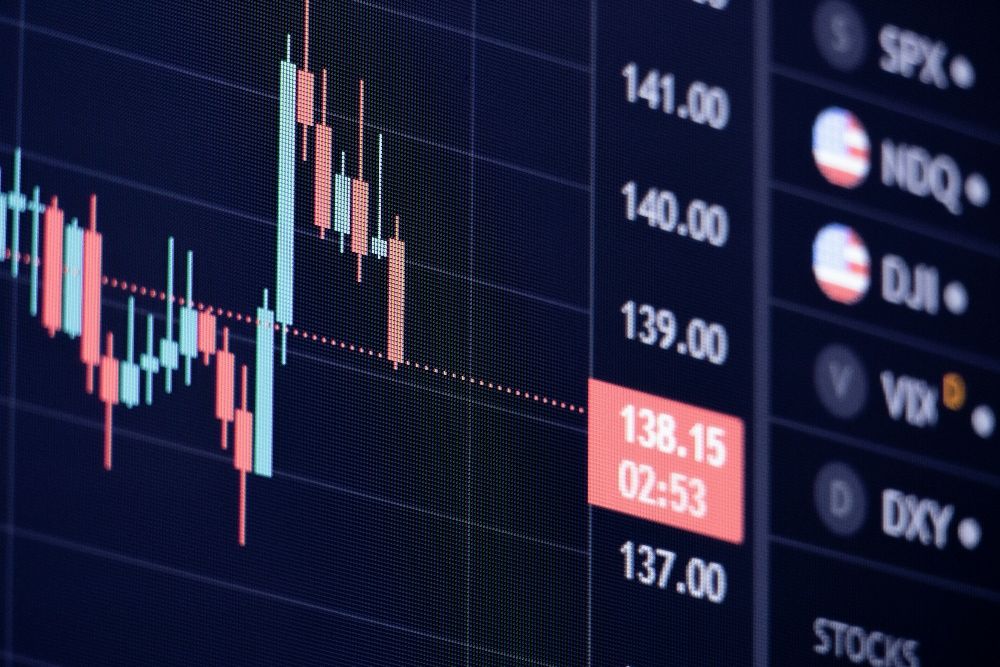European stock markets kicked off the week on a positive note Monday, as investors grasped onto a sliver of stability following recent trade turmoil, turning their attention partly towards the upcoming first-quarter earnings season.
A temporary exemption for electronics from new US tariffs provided the primary catalyst for the upward momentum, even as contradictory signals from Washington kept underlying uncertainty firmly in place.
The Stoxx Europe 600 Index reflected the improved sentiment, rising 2.0% by 8:05 a.m. in London.
Technology shares were notable beneficiaries after the White House indicated, via guidance from US Customs and Border Protection issued late Friday, that smartphones, computers, and other electronic components would be spared from the hefty “reciprocal” tariffs announced earlier by President Donald Trump.
This initial move, which imposed levies up to 145% on certain Chinese goods, had threatened significant disruption, particularly for tech giants like Apple (NASDAQ:AAPL) heavily reliant on Chinese supply chains.
Across the continent, major indices followed suit. By 03:05 ET (07:05 GMT), Germany’s DAX index had climbed 2.1%, France’s CAC 40 added 2%, and the UK’s FTSE 100 rose 1.5%.
The broader pan-European Stoxx 600 index also posted gains of 1.4%.
The relief rally suggested investors were speculating, or perhaps hoping, that the intense market backlash following Trump’s initial tariff volleys might temper the administration’s future actions, leading to a less damaging trade conflict overall.
Tariff whiplash: uncertainty remains paramount
However, the sense of calm proved fragile. Over the weekend, President Trump himself muddied the waters, suggesting the electronics exemption was merely temporary.
He indicated plans to announce separate tariffs specifically targeting electronics, potentially including semiconductors, as early as the coming week.
Furthermore, he emphasized that electronics imports from China were not entirely off the hook, stating they remained subject to a separate 20% tariff imposed back in March.
This back-and-forth underscored the persistent lack of clarity surrounding US trade policy.
Shifting focus: ECB meeting looms garge
With a light economic calendar in Europe on Monday, market participants are already looking ahead to a pivotal meeting of the European Central Bank (ECB) later this week.
Policymakers face a complex balancing act, needing to factor in the renewed economic headwinds generated by trade tensions and the recent strengthening of the euro against the dollar.
Analysts at ING suggested the ECB’s perspective has likely evolved since its March gathering, according investing.com.
Back then, optimism was cautiously building, supported by factors like Germany’s fiscal policy shifts and increased European defense spending, with interest rates perceived as nearing a neutral level.
Now, however, “new US tariffs on European goods, coupled with a rising euro and falling energy prices, have raised concerns over growth and disinflation in the near term,” according to ING, potentially prompting a more cautious stance from the central bank.
Corporate currents: tech shines, Holcim plans spin-off
On the corporate front, the tariff news directly benefited European technology stalwarts.
Shares in companies like semiconductor equipment maker ASML (AS:ASML) and software giant SAP (ETR:SAPG) registered strong gains, reacting positively to the temporary reprieve for electronics largely sourced from China.
Separately, Swiss building materials company Holcim (SIX:HOLN) provided an update on its strategic plans, announcing that the anticipated spin-off of its significant North American business is targeted for June.
This move remains subject to shareholder approval at the company’s annual general meeting scheduled for May 14.
Oil market stabilizes amid demand worries
Meanwhile, in the commodities sphere, oil prices found some stability on Monday after enduring recent declines.
The earlier losses were primarily driven by concerns that the escalating trade friction between the US and China – the world’s two largest oil consumers – would inevitably dampen global economic growth and curb demand for fuel.
As of 03:05 ET, Brent crude futures saw a minor dip of 0.1% to $64.67 a barrel, while US West Texas Intermediate (WTI) crude futures also edged down 0.1% to $61.44 a barrel.
Both benchmarks had shed approximately $10 per barrel since the beginning of the month, highlighting the tangible impact of trade war anxieties on energy markets.
The post European stocks climb as tariff relief offers brief breather appeared first on Invezz

